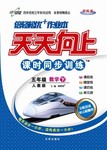题目内容
15.Every living thing has genes.Genes carry information.(36)Theyarepassedonfromgenerationtogeneration.They make sure that humans give birth to humans and cows give birth to cows.They also make sure that a dog doesn't give birth to a frog,or an elephant to a horse.However,genetic engineers take genes from one species-for example,a snake,and transfer them to another-for example,corn.(37)Inthiswayanewlifeformiscreated.Such new life forms have been described,by some scientists as a real-life Frankenstein.Genetic engineers put duck genes into chicken to make the chickens bigger.They put hormones(激素)into cows to make them produce more milk.They put genes from flowers into beans and from fish into tomatoes.(38)Thisdoesn'tmakethemcheaper,tastier,orhealthier. It just makes them easier and faster for the farmer to grow.
The effects of genetic engineering on the natural world may be disastrous.The engineers may create strange life beings,or monsters.that we cannot contro1.(39)Thenewlifeformshavenonaturalhabitatorhome. They'11 have to find one,fight for one-or kill for one.It may be your land they fight for-or you that they kill.Moreover,the effects of these experiments can often be cruel.In America,pigs were given human genes to make them bigger and less fatty.The experiment failed.The pigs became very ill and began to lose their eyesight.
We would all like a better,healthier and longer life,and genetic engineering might give us this.On the other hand,it may be a dangerous experiment with nature.In the story of Frankenstein,the doctor created such a terrible and dangerous monster that he had to destroy it.(40)Wemustmakesurethatthistaleremainsastory-andnomorethanthat..
A.They are passed on from generation to generation.
B.In this way a new life form is created.
C.The new life forms have no natural habitat or home.
D.This doesn't make them cheaper,tastier,or healthier.
E.Then they feed the tomatoes to the fish.
F.We must make sure that this tale remains a story-and no more than that.
G.The information tells us what to do or what not to do.
分析 本文是一篇说明文,主要讲述了每个生物都具有基因,基因能携带信息,且世代相传,这样就会使每个物种都能不断繁衍下去.但是基因工程师会从一种物种中提取基因,然后把他们演变成其它的物种,这样新的生命形式就诞生了,比如:提取蛇的基因然后演变成谷物,鸭的基因放到鸡中,花的基因放到黄豆中等诸如此类.基因工程对自然世界的影响可能是灾难性的,他们往往是些奇怪的无法控制的生命形式,会杀害一些现有的生命形式,我们希望基因工程能带给我们更好,更健康,更长寿的生命.
解答 36.G 考查信息提取题.根据题干和G项中的关键词:passon,carry,generation,gene判断答案.故选G项.
37.F 考查信息提取题.根据题干和F项中的关键词:newlife,form判断答案.故选F项.
38.C 考查信息提取题.根据题干和C项中的关键词:cheaper,tastier,or healthier,easier,faster等判断答案.故选C项.
39.D 考查信息提取题.根据题干和D项中的关键词:natural,pig,home等判断答案.故选D项.
40.B 考查信息提取题.根据题干和B项中的关键词:story,tale判断答案.故选B项.
点评 解答此类题目可遵循以下步骤:第一步,通读全文,了解文章大意,获得整体印象,同时初选出一批较有把握的答案.第二步,边核对初选答案边补填留下的空格.如果短文难度较大,则可复读几遍,核对和确定答案.有些空一时决定不了,可作个记号,待复查时再确定. 第三步,复查定稿.从整体理解角度出发,仔细审核答案,确保意义上、语法上没有错误,同时对遗留下来的少数几个空格作最后选择.

练习册系列答案
 赢在课堂名师课时计划系列答案
赢在课堂名师课时计划系列答案 天天向上课时同步训练系列答案
天天向上课时同步训练系列答案
相关题目
16.-How come the lake smells so terrible?
-Because large quantities of water .( )
-Because large quantities of water .( )
| A. | have polluted | B. | are going to pollute | ||
| C. | had been polluted | D. | have been polluted |
17.-May I carry the heavy box for you?
-Yes,please.________.( )
-Yes,please.________.( )
| A. | But thank you all the same | B. | I'd be very grateful | ||
| C. | I can manage it myself | D. | At your service |
10.The employment rate has continued to rise in big cities thanks to the efforts of the local governments to increase ___.( )
| A. | them | B. | those | C. | it | D. | that |
20. by a lot of newsmen,the newly-elected mayor of the city felt he had to say something.( )
| A. | Having surrounded | B. | To be surrounded | ||
| C. | Surrounded | D. | Surrounding |
7.-What is the man,actually?
-I don't know for sure.But I think he can be _____ but a policeman.( )
-I don't know for sure.But I think he can be _____ but a policeman.( )
| A. | nothing | B. | something | C. | everything | D. | anything |
4.As the big day of my speech ______,I tried to familiarize myself with what I would be saying.( )
| A. | has approached | B. | would approach | C. | was approaching | D. | had approached |
5.It is no use doing _____ you like; you have got to like _____ you do.( )
| A. | what; how | B. | which; when | C. | how; what | D. | what; what |